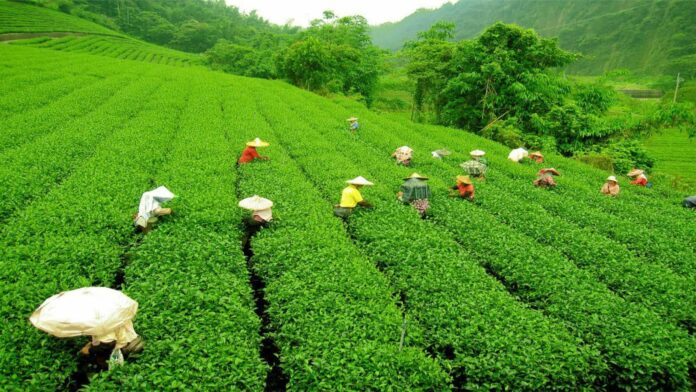Consultative Committee of Plantation Associations (CCPA), an umbrella organization of the Tea Producers’ Associations, has sought a ban on expansions of tea areas across the country for a period of five years to tide over the crisis of the tea industry.
To overcome the distress in the tea sector, the CCPA has sought to review the land utilization policy by allowing alternative use of 20 per cent of the land under the Tea Grant Area to enable tea estates to opt for agro and commercial diversification on a larger scale to augment their income. Presently in Assam, 5 percent alternative use of land is allowed.
The TPA has also asked the government to exempt the tea industry from the Union Budget’s proposal of two per cent TDS on cash withdrawal of more than Rs 1 crore if aggregate cash withdrawal from one or more accounts exceeds Rs 1 crore, as tea wages are paid in cash.
The tea producers have sought a bailout package, like the government gave out to the textile sector. ea industry captains on said it was reeling under a “prolonged” crisis and will not be able pay more bonus to its workers.
The industry captains, under the aegis of Consultative Committee of Plantation Associations (CCPA), said prices at the auctions have remained stagnant over the last few years causing severe stress while wages increased by around 22 per cent last year aggravating the problem.
“We may not be able to pay more other than the minimum 8.33 per cent stipulated under The Payment of Bonus Act, 1965,” said adviser to the North Eastern Tea Association and CCPA member, Bidyananda Barkakoty.
To drive home the point of low prices at auctions, Barkakoty said from April to August, the average price of tea was Rs 164.97 as compared to Rs 170.70 during the same period last year. The cost of production was Rs 200 per kg, which means the prices being realised at the auctions was not covering the cost of production, he said.
Indian Tea Association chairman Mr. Vivek Goenka said the industry was in need of a financial package which should provide working capital loans with interest subvention along with a provision for a two-year moratorium. “The government may consider taking over the employers’ portion of contribution to the provident fund for at least three years. This would be in the line with the spirit of the Pradhan Mantri Rojgar Protsahan Yojana scheme,” he said. “The banks have stopped lending to the tea sector which has aggravated the situation,” he said and requested the Assam government and the Centre for urgent intervention.
Goenka, who is also CCPA chairman, said bad quality tea entering the market was another new problem which had aggravated the financial crisis. He said domestic consumption and exports have not kept pace with the rapid increase in production and there is an apparent oversupply in the market. “Per capita domestic consumption at 786 grams per year is low when compared to some other tea-consuming countries and needs to be increased,” he added. “The increase in tea production in the country over the last decade from 979 million kg in 2009 to 1,339 million kg in 2018 was largely contributed by the small tea growers,” Goenka said.
He said a mechanism to institutionalise the application of social welfare schemes for the resident workers and non-workers of tea estates covering medical, education and sanitation, among others, needs to be accorded priority in keeping with the recommendations of various government-appointed committees.



















